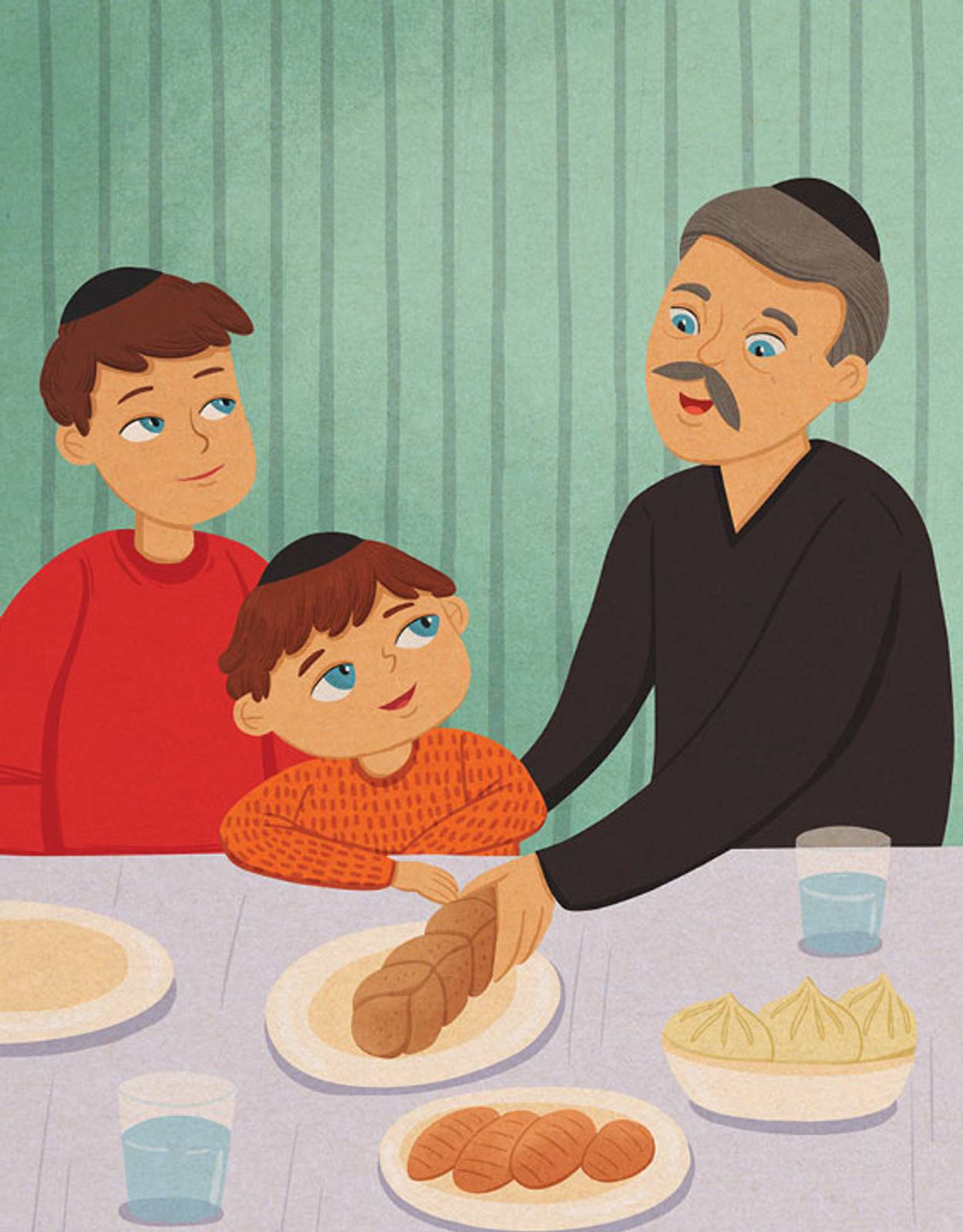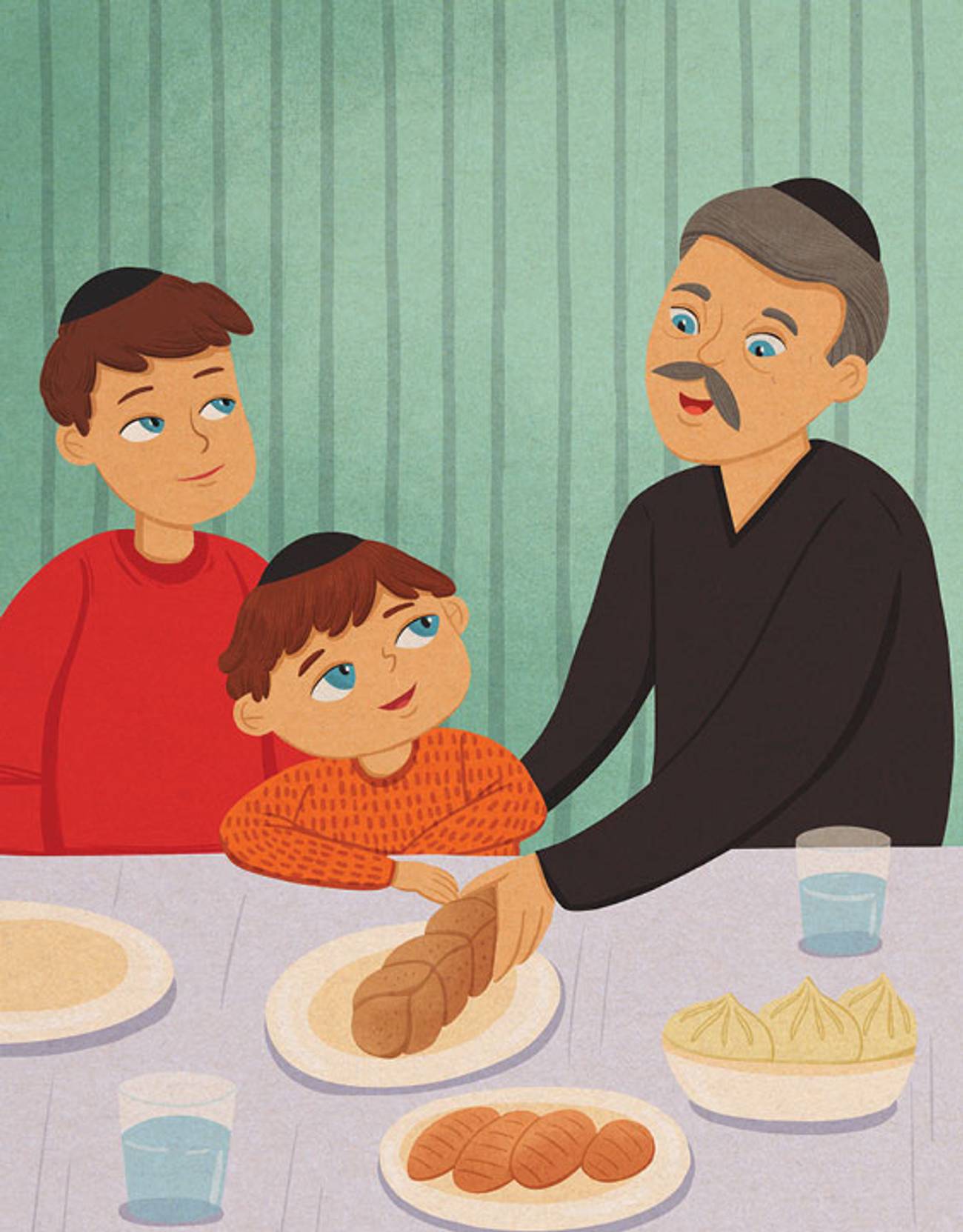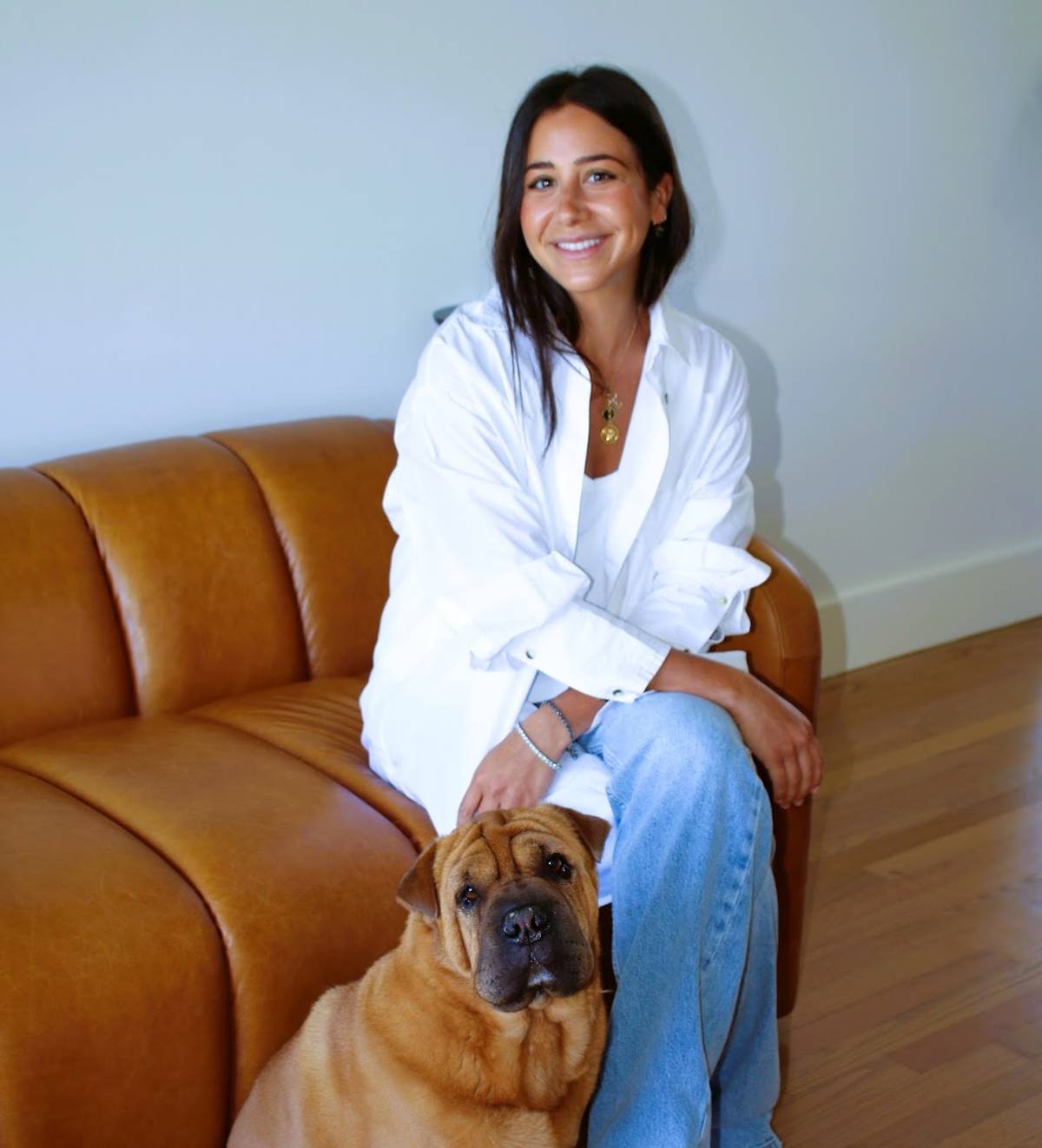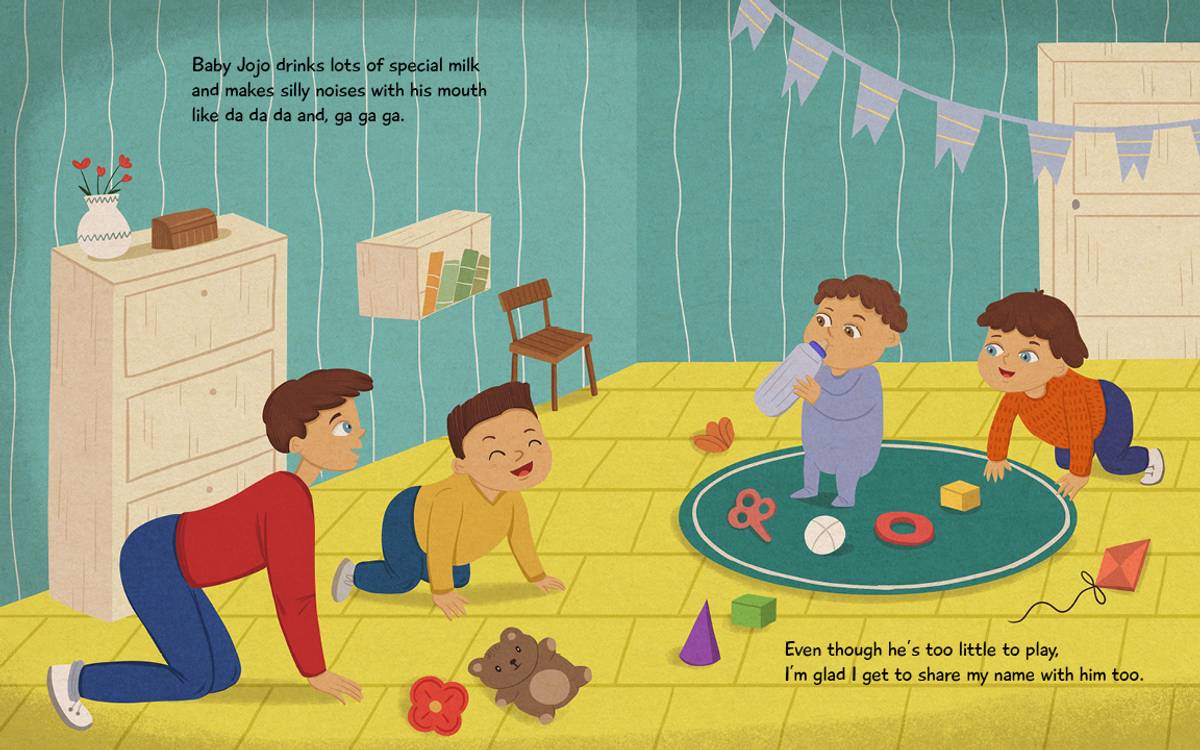Call Me by My Grandfather’s Name
Esther Levy Chehebar explains Sephardic traditions around names in her new children’s book




When Esther Levy Chehebar’s eldest son Jojo was 3 years old, he asked her, “Why is everyone named Jojo?”
“I paused and said, ‘Well, not everybody’s name is Jojo,’” recalled Chehebar. “But it was true for basically everyone in his world at the time, which was his cousins and his grandfather.” Traditionally, Sephardic Jews name their firstborn son after the paternal grandfather, so Jojo (short for Joseph) is named for Chehebar’s husband’s father.
Chehebar realized that while this custom was very familiar to her, it might not be as clear to her young son, so she decided to find a creative way to answer his question by putting together a picture book. She included photos of her son and his cousins to explain the concept of naming children after living relatives, and give him an age-appropriate explanation about why he shares a name with so many of his family members.
The book worked, and answered Jojo’s questions—and then others in her Sephardic community in South Brooklyn caught on. “I found myself discussing the project with a friend, and she said, ‘Oh, I want one,’” said Chehebar. “It just snowballed from there, because we all follow the same naming customs.”
Eventually, Chehebar was lucky enough to meet a publisher whose family follows a similar naming custom. “While I don’t come from a Jewish background, our family is Greek Orthodox and many families use family naming as an important part of maintaining the tradition, and the culture,” said Calee Lee, founder and CEO of Xist Publishing. “Right now we’re in a time where it’s very easy to get wrapped up in our own selves, and either assume that everyone is like us, or feel that our story isn’t being accurately represented. I thought this book provided a really nice way to introduce children to a family that either looks like theirs, or was totally new to them. And if it did reflect their family, it was in a way that they probably haven’t ever seen in a book before.”
That’s how Chehebar came to publish her first children’s book, I Share My Name, which explains the Sephardic custom of baby-naming, from a child’s perspective. Luisa Galstyan, whose background is Armenian Jewish, added the illustrations.
Chehebar felt the Sephardic traditions and customs were missing from the children’s books she’d read with her children. “I was definitely hoping to put my mark on Sephardic children’s literature,” she said. “First and foremost, it was important to me to have a book that celebrates a tradition that is not just specific to our community, but that is such a big part of our culture.”
I Share My Name depicts Sephardic culture beyond the naming tradition. Chehebar describes Syrian dishes such as kibbe cherry, eggplant mehsi, and hamid when Jojo visits his grandparents for Shabbat dinner—a far cry from the standard chicken soup and cholent usually represented in Jewish children’s books. “It was very important to me to throw in a lot of Sephardic elements in the book,” said Chehebar. “Parents tell me how much they appreciate being represented in an actual piece of literature that’s out in the world.”

Chehebar’s book has become a tool for other families inside (and outside) her community, not only to explain to their children why they share a name with so many family members, but also to instill a sense of pride. “It’s been so nice to see other kids relating to the book. It’s great to see a kid named Albert read it and be able to say, ‘Oh, I understand why I have so many cousins named Albert, and that’s why I’m named after my grandfather.’”
“I love how she writes about our traditions in a way that makes them seem relevant and not outdated,” said Frances Cohen, a friend of Chehebar’s who often reads I Share My Name to her three children. “She’s able to shed light on the beauty of it.”
Cohen’s eldest son, also named Jojo (though they’re not related) has a unique appreciation for the book. “My eldest son loves the book,” said Cohen. “Before reading it, he was just one of many, and now he really gets why he shares his name, and he looks up to his grandfather and now knows they share this bond.” Cohen feels the book helped explain the why behind the tradition in a child-friendly way that she wasn’t able to. “Plus, it really shows the beauty of so many aspects of our community—how we’re all so close, and what we do on Shabbat,” said Cohen. “My son said ‘Look, Mom, they eat mehsi!’ We’ve never seen Syrian foods represented in a book before.”
Though Chehebar has an MFA in creative nonfiction, she didn’t set out to become a children’s book author. “It’s not something I ever thought I’d do or ever thought I’d be interested in,” said Chehebar. “But I guess that’s what happens when you have children and you’re reading 85 books to get your kids to sleep. You sort of start thinking in children’s books.”
I asked Chehebar if she ever considered straying from her family’s tradition by choosing different names for her children. “I wanted to continue being alive, so it was a no-brainer,” she said with a laugh. Some parents in the community use children’s middle names to express individuality, but Chehebar still went the traditional route, choosing middle names that honored her maternal grandparents. “It’s a very serious thing in our culture, and I think having kids in the age of Instagram and seeing all the crazy names out there actually made me appreciate not having to think about coming up with an original name. That name really becomes their legacy, and now my son understands his connection to his family, and I think it’s so beautiful.”
Chehebar, 31, grew up in Brooklyn’s Sephardic community, and she’s been documenting (in Tablet) the distinctive customs and traditions of her community. “My father’s side is Egyptian and my mother’s father was born in Syria, so we have a nice little mix,” she said.
Although Chehebar lived briefly in Manhattan and spent a few months in New Jersey during the COVID-19 pandemic, she missed her community and longed to be back. “I grew up in Brooklyn. I went to school, college, and graduate school here. The Brooklyn pull is strong,” she said. Now she’s back in her old neighborhood, with her husband—who’s also Sephardic and grew up in Brooklyn—and three kids, four blocks away from the house she grew up in. “My parents, grandmother, and all of my cousins and friends are still here. So it’s a very tightknit community.”
Chehebar finds it comforting to be raising her family in the exact same neighborhood she grew up in, among most of her friends and relatives. “It’s wild to have the experience now of parenting in this place as opposed to growing up in it,” she said. “The traditions have lived on, and are still very poignant and very much alive, and now I’m the person responsible for upholding all of those customs that I grew up with.”
Sephardic Jews have very specific customs and rituals that are quite different from those of Jews of Eastern European descent, from their cuisine and specific prayer melodies to unique superstitions. While some perceive the community to be insular, it’s the very warm, tightly bound quality that many adore so much.

Some things that Chehebar once balked at, like some Sephardic superstitions, make more sense to her now that she’s a mother. Her children all have a hamsa under their cribs (meant to ward off the evil eye), and she avoids saying the number five, which is believed to be associated with the evil eye. “The superstitions are very hard to shake once you buy into them,” she said.
“It’s funny, I thought I was rebellious and I’m realizing I’m not at all,” said Chehebar. “I’m still making the same Tuesday night dinner that my mother made for me, and I swore I wouldn’t. The recipes are the same, and I even use my mother’s cookbook with oil marks on it.”
While Chehebar definitely uses social media, she finds the most relevant parenting advice from within her community. “In many ways I feel like we managed to preserve this very unique village quality where you get your information from the people around you, and you borrow ingredients from your neighbor,” she said. “What I thought was going to be my most dreaded fear of parenting in the community, very quickly became my favorite thing—which is the idea of raising children surrounded by people you’re familiar with, and comfortable with. I think it’s amazing, and very much worth preserving.”
Jamie Betesh Carter is a researcher, writer, and mother living in Brooklyn.